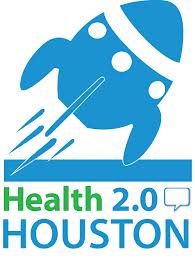The following represents a rough narrative of my opening remarks at the launch of Health 2.0 Houston, January 29th, 2013
Let me be the first to welcome everyone to the launch of Health 2.0 Houston. This is a huge night for the Houston medical community and anyone concerned with the future of health care. Congratulations to Brian Lang and Laura Shapland for pulling off a tremendous event. I’d like to think that it was my link bait promotional tweets that filled the house but I think it was more likely the huge effort that Brian and Laura put into this. I want to thank them for giving me the opportunity to offer some opening remarks on how medicine is changing and how Health 2.0 Houston factors in.
This is truly the most remarkable time to be in medicine. I always say that I’m convinced that I was born at just the right time in history. I was trained as an analog physician but have been a witness to the digital revolution that Eric Topol has called The Creative Destruction of Medicine. Everything we understand about what it is to be a doctor is changing. If we were to fast-forward to the year 2050, the work of a physician would be unrecognizable. We as physicians are being completely redefined. And here’s how:
- Technology. What we have traditionally done with our eyes, ears and hands has been replaced by technology. I believe that we’re truly advancing into an era of post-human medicine.
- Empowered patient. There has been nothing more powerful in the redefinition of the doctor than the empowered patient. Patients are changing and they, in turn, are changing us. For the better part of modern civilization our role as physician has centered around privileged access to information and knowledge. But the web has created a type of disintermediation. Patients can do more on their own. They can share information and adjust what they’re doing based on the input of others. And the physician encounter is evolving as a more narrowly defined element in an individual’s quest to understand their condition and get better.
- Information. And all of this is fueled by information, access to information and our ability to share it.
Despite the changes underway we’re still a profession of information and idea isolation. Our culture of medicine is one that insists on permission before sharing or creating new ideas. Many of us still live and work under a 20th century construct of patient care and communication. Many physicians try to see the future through a rear view mirror.
So we have a lot of work to do to prepare the next generation of physicians. Howard Rheingold has suggested that this generation needs a new set of literacies in order to survive. We’re working on it.
I’m privileged to be co-teaching a course at Rice University this spring, Medicine in the Age of Networked Intelligence. I believe it’s the first course of its kind that aims to teach basic digital literacies to the next generation of provider. The course is being offered under a new program called the Medical Futures Lab, a collaboration between BCM, Rice and UT that seeks to address the problems facing medicine at the intersection with technology.
I’ll should add that my co-founder, Kirsten Ostherr, is an English professor. And it makes perfect sense because the solutions to our most pressing health care problems often lie outside the verticals where we’ve traditionally sought answers. It’s this sort of non-traditional collaboration that will fuel Health 2.0 Houston. I see this as mixing the best of the Texas Medical Center with the most disruptive minds in health technology. In the 20th century some of the greatest developments in medicine arose from the institutions of the Texas Medical Center. The greatest health care innovations in the 21st century may well arise from the bottom or the edges of medicine, facilitated by groups like Health 2.0 Houston.
In closing I’d like to add that while technology has created the foundation for Health 2.0 Houston, the human spirit to build, create, innovate, participate and connect is what will drive it forward. I look forward to the opportunity of meeting each and every one of you.
